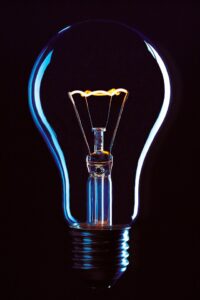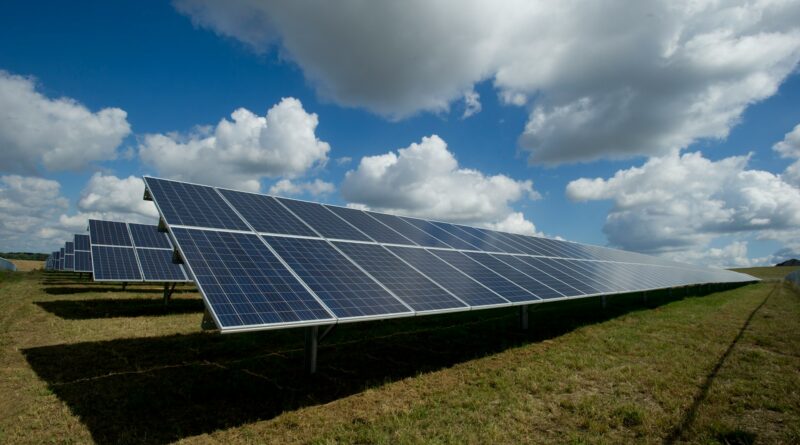Impact of Internet of Things (IoT) on Energy Management and Efficiency
Impact of Internet of Things (IoT) on Energy Management and Efficiency
Najeem O. Adelakun, Matthew B. Olajide, Samuel A. Omolola
Introduction
The concept of the Internet of Things (IoT) represents an evolutionary change in modern technology, which comprises a broad network of physically connected objects, usually known as “things.” These devices, which range from everyday home appliances and wearable technology to smart industrial equipment and vital infrastructure components, are integrated with modern technology, sophisticated sensors, and innovative technologies. Their major goal is to enable an entirely novel form of connection and intelligence across several domains by efficiently gathering, exchanging, and processing data across the internet. The essential elements of the Internet of Things are at the heart of its functionality, collaborating to enable effective data management and utilisation. These components include the devices and sensors responsible for data collection, the connectivity mechanisms that enable data exchange between devices and central systems, sophisticated data processing and analytics tools for deriving actionable insights, and the diverse applications and services that leverage IoT-generated data to enhance functionality and the user experience.
—IoT technologies revolutionise energy management through real-time data, automation, and intelligent control mechanisms—
One of the most significant aspects of the Internet of Things (IoT) is its profound impact on energy management practices. By integrating IoT technologies into energy systems, organisations can achieve remarkable advancements in efficiency, cost-effectiveness, resource optimisation, and environmental sustainability. These technologies empower energy management solutions with real-time data monitoring, predictive analytics, intelligent automation, and adaptive control capabilities. This transformative integration not only enhances operational efficiency and decision-making but also significantly contributes to the development of sustainable, resilient energy infrastructures across various industries. This research paper aims to provide a comprehensive understanding of how the IoT is reshaping the energy sector. By delving into the intricacies of IoT-enabled energy management, the paper aims to highlight the numerous benefits, such as sustainability, cost-effectiveness, operational efficiency, and resilience in energy systems. Furthermore, it aims to identify areas for further exploration, innovation, and collaboration to unlock the full potential of IoT in advancing global energy management and efficiency initiatives.
IoT Technologies in Energy Management
 IoT technologies revolutionise energy management through real-time data, automation, and intelligent control mechanisms. These technologies encompass devices, sensors, platforms, and analytics tools that monitor, analyse, and optimise energy usage. This revolution contributes to greater efficiency, cost savings, sustainability, and resilience in energy systems. Below are some key IoT technologies used in energy management systems:
IoT technologies revolutionise energy management through real-time data, automation, and intelligent control mechanisms. These technologies encompass devices, sensors, platforms, and analytics tools that monitor, analyse, and optimise energy usage. This revolution contributes to greater efficiency, cost savings, sustainability, and resilience in energy systems. Below are some key IoT technologies used in energy management systems:
- Energy Management Platforms
- Predictive Analytics and Machine Learning
- Smart Meters
- IoT-Enabled Sensors
- Smart Grid Technologies
- Building Automation Systems (BAS)
- Demand Response Systems
- Energy Storage Solutions
- Remote Monitoring and Control
- Energy-Efficient Appliances
Energy Efficiency Benefits of the IoT
The integration of Internet of Things (IoT) technologies in energy management brings numerous benefits that significantly enhance energy efficiency. This integration leads to reduced operational costs, environmental impact, and reliance on finite resources, while promoting sustainability, resilience, and innovation in energy systems. Below are the key energy efficiency benefits derived from implementing IoT across various sectors:
- Real-time Monitoring and Data Analytics
- Enhanced Resource Optimization
- Predictive Maintenance Capabilities
- Efficient Demand Response and Load Management
- Automation of Energy Systems for Efficiency
- Enhanced Performance of Buildings
- Insights into Consumer Behaviour and Increased Engagement
- Seamless Integration with Renewable Energy Sources
Challenges and Considerations
While the integration of Internet of Things (IoT) technologies in energy management brings numerous benefits, there are several challenges and considerations that need to be addressed for successful deployment and operation. The adoption of IoT in energy management promises increased efficiency, reduced costs, enhanced sustainability, and improved decision-making. However, ensuring data security, interoperability, scalability, regulatory compliance, data reliability, and cost-effectiveness are critical aspects that require careful planning and implementation. By proactively addressing these challenges and considerations, organisations can fully leverage the potential of the IoT to transform their energy management strategies and achieve long-term success. Some of the key challenges and considerations include:
- Ensuring the security and privacy of data.
- Achieving interoperability and compatibility among devices.
- Managing scalability and addressing network congestion.
- Optimising power consumption and extending battery life.
- Compliance with regulations and industry standards.
- Ensuring data quality and reliability.
- Evaluating costs and determining return on investment (ROI).
Future Trends and Opportunities
Several future trends and opportunities are poised to shape the landscape of IoT in energy management, driving further innovation, efficiency gains, and sustainability. Some of the key future trends and opportunities include:
- Using edge computing to gain real-time insights.
- Incorporating AI and machine learning into IoT systems.
- Implementing blockchain technology for energy transactions.
- Leveraging 5G connectivity for IoT devices.
- Enhancing energy storage capabilities and enhancing grid flexibility.
- Developing smart cities and focusing on urban energy management.
- Enhancing cybersecurity and data privacy measures for IoT solutions.
Conclusion
The study delves into the transformative impact of Internet of Things (IoT) technologies on energy management, showcasing a paradigm shift towards efficiency, sustainability, and innovation. By exploring key concepts such as edge computing, AI integration, blockchain applications, 5G connectivity, energy storage advancements, smart city initiatives, and cybersecurity measures, the study unravels a tapestry of opportunities poised to revolutionise the energy landscape. The integration of IoT in energy management not only promises real-time insights, predictive capabilities, and optimised resource utilisation but also paves the way for resilient, decentralised energy systems. The synergy between IoT technologies and energy management fosters a more interconnected, data-driven approach, empowering stakeholders to make informed decisions, reduce operational costs, and mitigate environmental impact. Furthermore, the study underscores the importance of addressing challenges such as data security, interoperability, scalability, regulatory compliance, data quality, and cost considerations to unlock the full potential of IoT in energy management. By embracing these trends, organisations can navigate towards a future where energy systems are not only efficient and sustainable but also resilient to evolving challenges and disruptions. Thus, the study advocates for continued research, collaboration, and innovation to drive positive change and create a more sustainable energy future.
Cite this article in APA as: Adelakun, N. O., Olajide, M. B., & Omolola, S. A. Impact of internet of things (IoT) on energy management and efficiency. (2024, March 26). Information Matters, Vol. 4, Issue 3. https://informationmatters.org/2024/03/impact-of-internet-of-things-iot-on-energy-management-and-efficiency/
Author
-

Engr. Najeem Olawale ADELAKUN is a career driven achiever with over Fifteen (15) years working experience in both industry and academic. He has served as a Craftsman, Technician, Electrical Engineer, Design Engineer, Lecturer, Reviewer, Editor, Facilitator, Instructor, Mentor, Website Designer, ICT Coordinator at various times in different organisations. He currently works at Federal College of Education Iwo, Osun State as an Engineer in the department of Works and Services. Engr. Adelakun current research interest are in various aspects of Electrical power system Engineering and information technology. He has authored and co-authored over fifty (50) publications in both local and international journals and conferences. Some of his published works are highly cited in both Scopus, Google scholar and in other academic field. He is serving as a member of editorial or reviewer board to over 40 Scopus/WOS/Elsevier journals, and also as a member of the technical, program, scientific and steering committee members at different times to over 10 international conferences. He is a COREN registered engineer, a fellow member of International Organization for Academic and Scientific Development (IOASD), and a member of several professional societies such as the Nigerian Society of Engineers (NSE), Nigerian Institution of Electrical Electronics Engineering (NIEEE), The Nigerian Institution of Facility Engineering & Management (NIFEngM), Nigerian Institution of Professional Engineers and Scientists (NIPES), National Society of Black Engineers (NSBE), International Association of Educators and Researchers (IAER), Association for Computing Machinery (ACM), International Association of Electrical, Electronic and Energy Engineering (IAEEEE), International Society for Applied Computing (ISAC), Institute of Research Engineers and Doctors (IRED), Asian Council of Science Editors (ASCE), among others. He is currently the National Publicity Secretary to Nigerian Institution of Facility Engineering and Management (NIFEngM), an active member of Nigerian Society of Engineers (NSE) Ilaro Branch, and has contributed immensely in different capacities such as: The collation/uploading of NSE Ilaro Branch 1st National conference proceeding on the branch website in 2020, he single-handedly designed E-Voting system for Nigerian Society of Engineers (NSE) Ilaro Branch in 2020 which he also served as a member of the Electoral Committee of the Branch during the AGM/branch election, in 2022 he also designed E-Voting system and also served as the secretary to the Electoral Committee during the AGM/branch election, also designed NSE Ilaro Branch e-data collation form for the newly inductee corporate members just to mention a few.
View all posts






